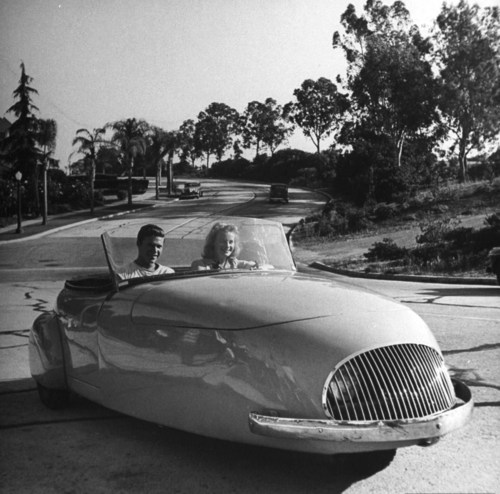The emotional cost of robocar accidents will probably be high, much in the same way that airplane crashes, seldom though they occur, cause panic and terror while run-of-the-mill lethal car accidents are accepted as normal. That’s because airplanes (and driverless cars, eventually) are beyond our control. Such accidents don’t happen because of us, but to us. It’s something we have to constantly arrange and rearrange in our minds.
But beyond the emotional questions, who (or what) will actually be legally liable when automatic autos collide? From Brad Templeton’s answer to that question:
“People often ask who would get sued in a robocar accident. They wonder if it will be the occupant/passenger/driver, or the car company, or perhaps the software developer or some component maker. They are concerned that this is the major ‘blocking’ issue to resolve before cars can operate on the road.
The real answer, at least in the USA and many other countries, is that in the early years, everybody will get sued. There will be no shortage of lawyers out to make a reputation on an early case here, and several defendants in every case. It’s also quite probable that it will be the occupant of a robocar suing the makers of the car, with no 3rd party involved.
One thing that’s very likely to be new about a robocar accident is that the car will have made detailed sensor recordings of the event. That means a 360 degree 3-D view of everything, as well as some video. That means the ability to play back the accident from any viewpoint, and to even look inside the software and see what it was doing. Robocar developers all want these logs, at least during the long development and improvement cycle. Eventually owners of robocars should be able to turn off logging, but that will take some time, and the first accidents will be exquisitely logged.
This means that there will be little difficulty figuring out which parties in the accident violated the vehicle code and/or were responsible in the traditional sense for the accident. Right away, we’ll know who was where they should not have been, and as such, unlike regular accidents, there will be no argument on these points.
If it turns out that the robocar was in the wrong, it is likely that the combination of parties associated with the car, in association with their insurers, will immediately offer a very reasonable settlement. If they are doing their job and reducing accidents, and meeting their projections for how much they are reducing them, the cost of such settlements will have been factored into the insured risk projections, and payment for this reduced number of accidents will be done as it always is by insurers, or possibly a self-insured equivalent.
That’s why the question of ‘who is liable?’ is much less important than people imagine.”
Tags: Brad Templeton

